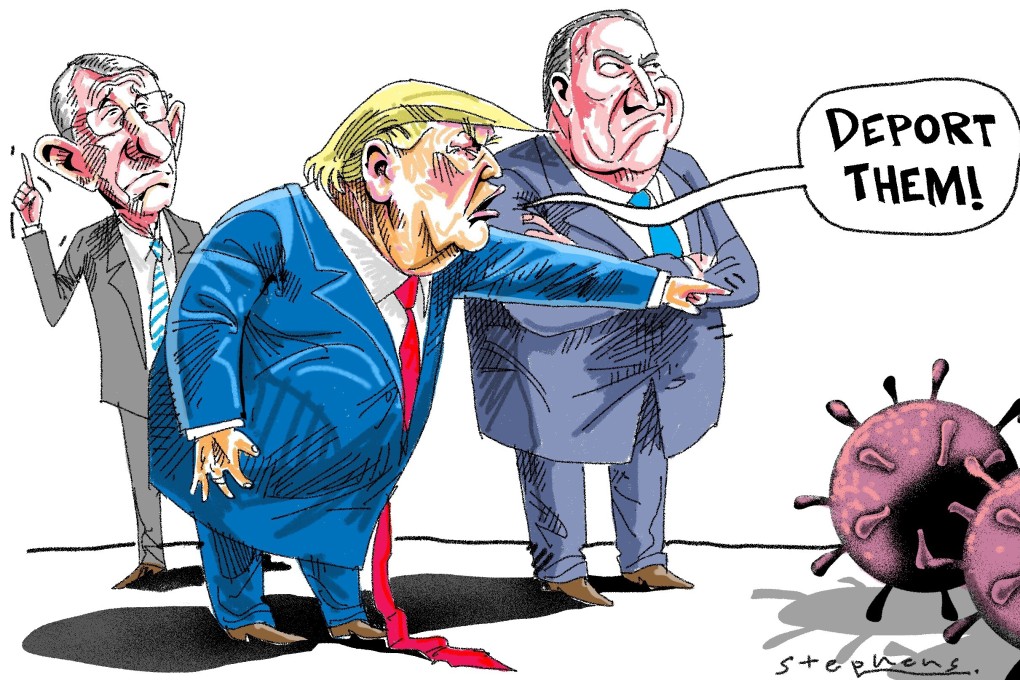Advertisement
Opinion | For the coronavirus-stricken West, blaming China is a dangerous waste of time
Consigning the problem to the Chinese regime and culture – ‘the other’ – has just bred negligence and hubris in the West, which contributed to delays in containing the outbreak and wasted the precious head start China won with its draconian lockdowns
Reading Time:4 minutes
Why you can trust SCMP
0

US Secretary of State Mike Pompeo has used “Wuhan virus,” and, until recently, President Donald Trump often used “Chinese virus,” to refer to the novel coronavirus. These terms contribute to the discrimination against East Asians in America and Europe. Their use has also been criticised as an attempt to cover up the failure of the American government’s responses to the outbreak.
A more serious problem is that the idea implicit in these terms – that the outbreak is a Chinese problem – and the negligence and hubris associated with it, contributed to a Western failure to properly respond to the outbreak. The danger is that humanity learns the wrong lesson and blindly awaits the next disaster, after paying a terrible price this time.
For some, the origin of the pandemic is the problem of “the other”, in that the outbreak originated in the “weird” and “backward” eating habits of Chinese. But anyone with just a basic knowledge of the history of pandemics should know that the main sources of contagion are livestock and other animals (such as rats) that have been with us since humans became settled farmers.
We have had many diseases from these animals in the long history of agrarian life and, as a result, have developed either immunity or treatments. The real danger of eating exotic meat is to introduce a new source of contagion.
But increased human exposure to nature through economic activity and tourism also brings new sources of contagious diseases, such as the Zika virus and Lyme disease. The focus on the meat of exotic and wild animals is thus misleading.
Moreover, the danger of consuming exotic meat does not come from the occasional eating of game by a hunter or a wealthy man in an isolated area, but from the large demand from China’s fast-growing middle class for what were once rare delicacies for the wealthy or the isolated few. This demand leads to problems of how to regulate the raising, transport and slaughter of these “wild” animals as well as “normal” livestock.
Advertisement
